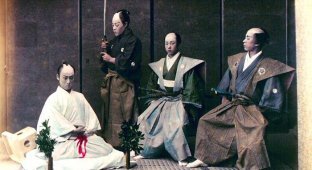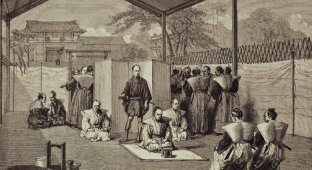What happened if a samurai refused to commit hara-kiri to himself? (9 photos)
Yes, hara-kiri (seppuku) is the famous Japanese custom of suicide for the highest aristocracy. 
By the way, there is essentially no special difference between these two words, hara-kiri and seppuku. Except perhaps for the subtleties of pronunciation. Both words are written with the characters 切腹, meaning "ripping open the belly." However, “harakiri” is a purely Japanese reading of these hieroglyphs, more often found in colloquial speech. Well, “seppuku” is the ancient Chinese “onnoye”, more official and pompous.
How did they commit harakiri? 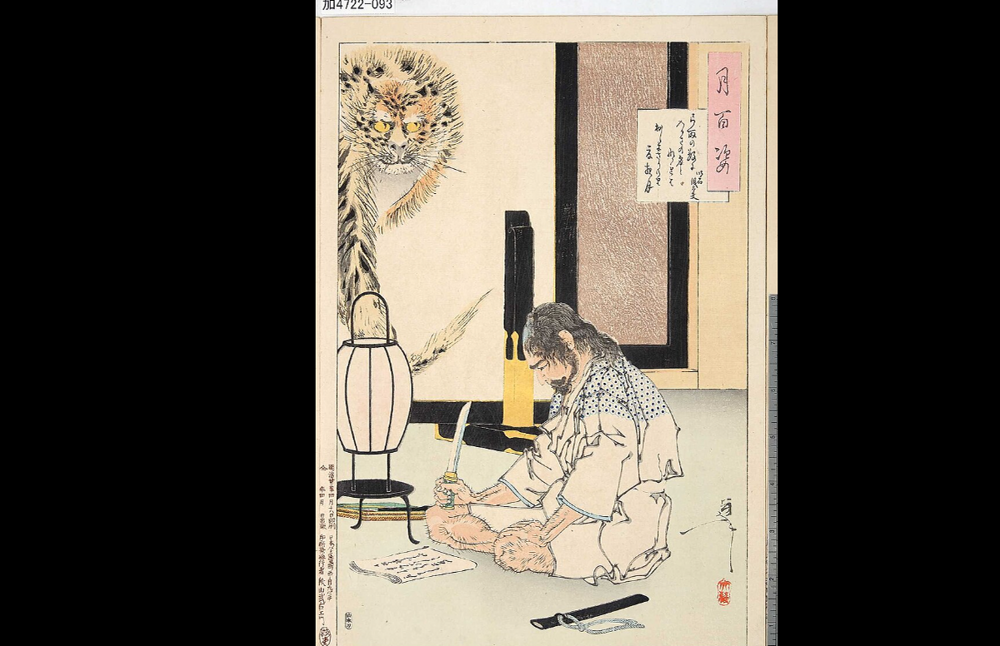
The procedure for performing hara-kiri is very clearly regulated. The samurai sits on his knees and writes his last poem (“waka”), clearly demonstrating his inner world before death.
After which he drinks four sips of sake vodka (the number four in Japanese sounds like “death” - “shi”). After that, he performs the prescribed ritual with a special small sword “tanto” (短刀). A servant or an old friend finishes him off with a katana.. . 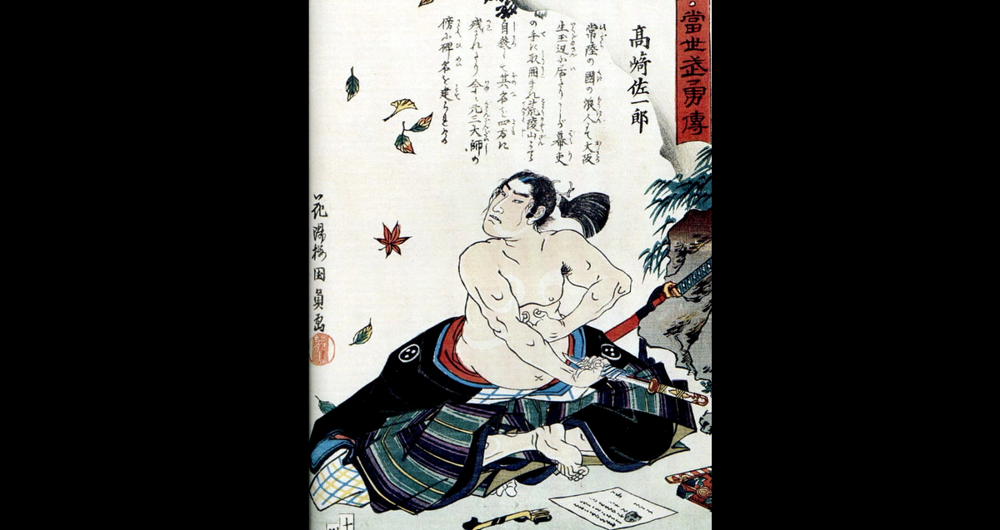
Antique Japanese print showing a samurai and hara-kiri
By the way, the opening of the abdomen did not just creep in here. Since ancient times, the Japanese have believed that it is in the stomach (腹 - “hara”) that the gods contain the life force of any person. And by opening his belly, a person just releases that very life into freedom. At the same time, revealing to the world your honest insides, as they say. 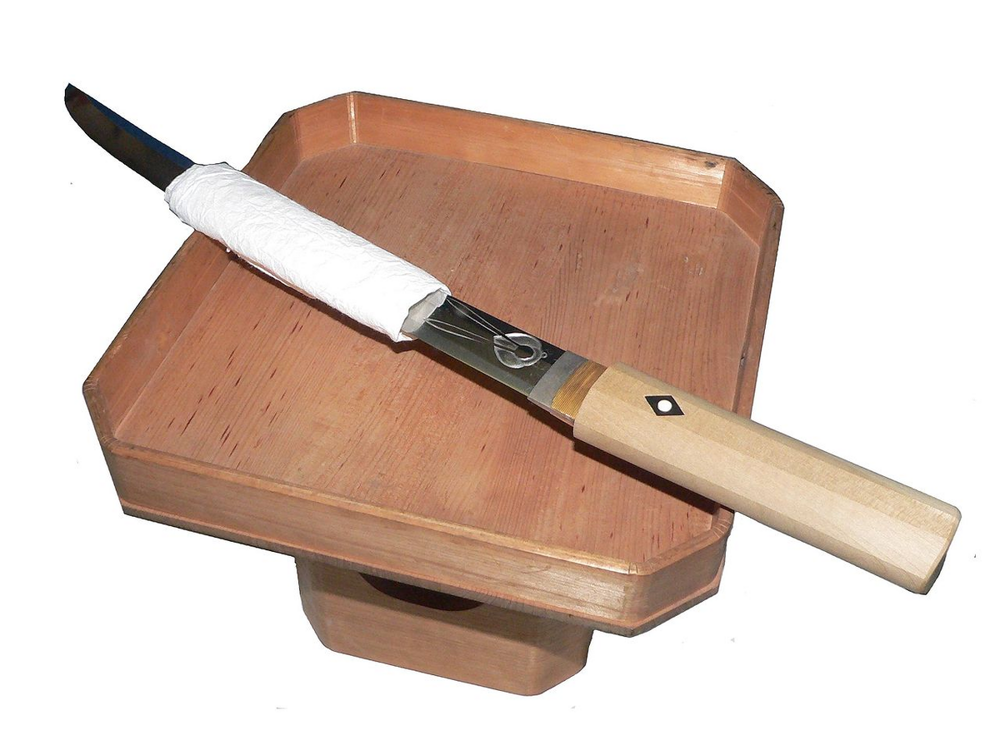
Tanto - a sword used to perform hara-kiri
The Japanese samurai always knew for sure that he should always and at any moment be able to completely calmly go to the ground floor of existence. And if he committed some major mistake in relation to the Mikado (emperor) or his entire country, covering his name with indelible shame, then he was obliged to fulfill that same hara-kiri. 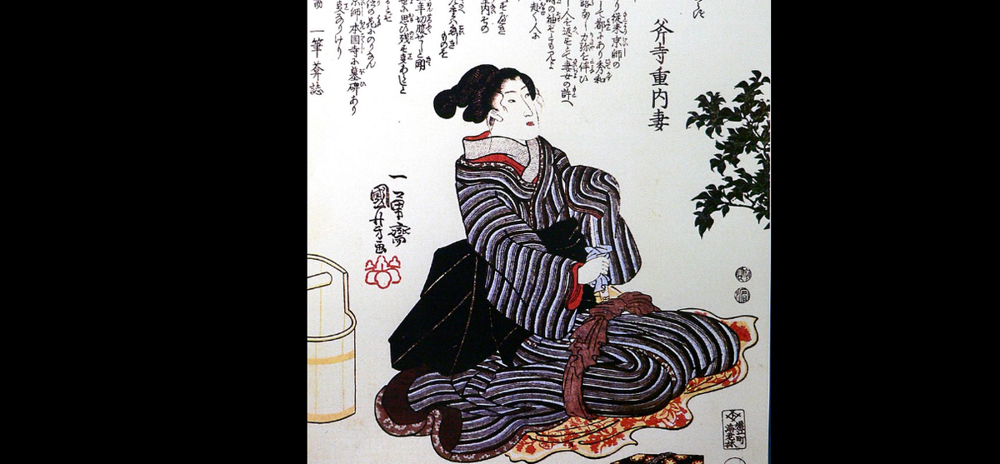
And yes, samurai wives could also commit hara-kiri. True, having previously tied his legs - so that after death he would not end up in a shameful position
A samurai could commit hara-kiri even if he did not commit any sins. It was just that his beloved daimyo (lord, lord) died in the war. Taking one's own life and passing away with the fallen overlord was considered in medieval Japan an act of the highest expression of loyalty.
Japanese officers, who considered themselves descendants of samurai, widely practiced hara-kiri at the beginning of the 20th century. For example, in 1912, Nogi Maresuke himself, the Japanese general who took Port Arthur, performed the ritual, considering himself personally responsible for the terrible losses during the long siege of the fortress. 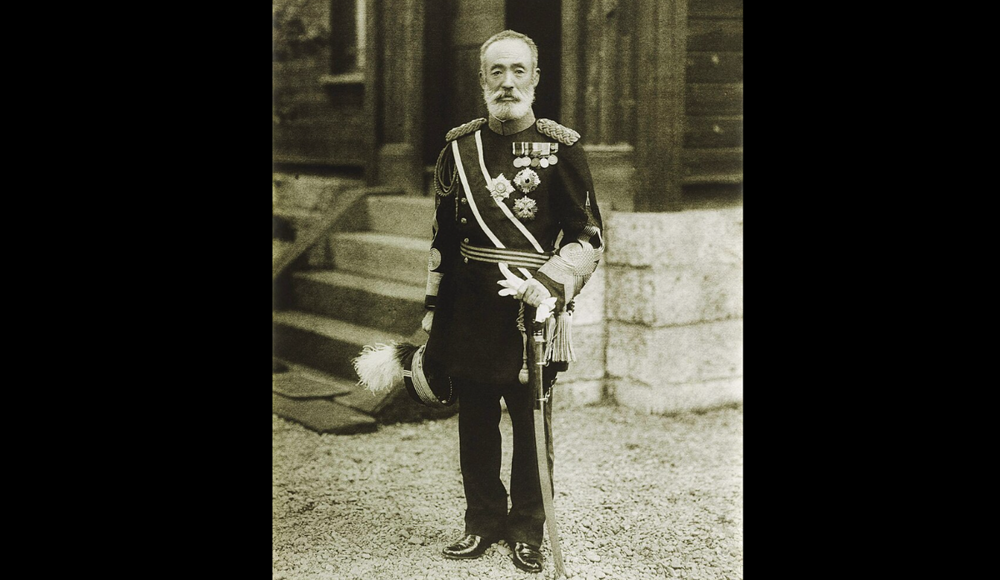
The last widely known mass acts of harakiri occurred in the Land of the Rising Sun in the early autumn of 1945. As you might guess, senior Japanese officers passed away one after another, dissatisfied with the defeat of their state in the war with the Americans.
Seppuku, by the way, is still practiced in Japan from time to time. For example, in 2001, the eminent Japanese judoka and Olympic champion Isao Inokuma decided to commit such suicide. Simply because he brought to a head the financial affairs of the construction company entrusted to him.
What if you refuse? 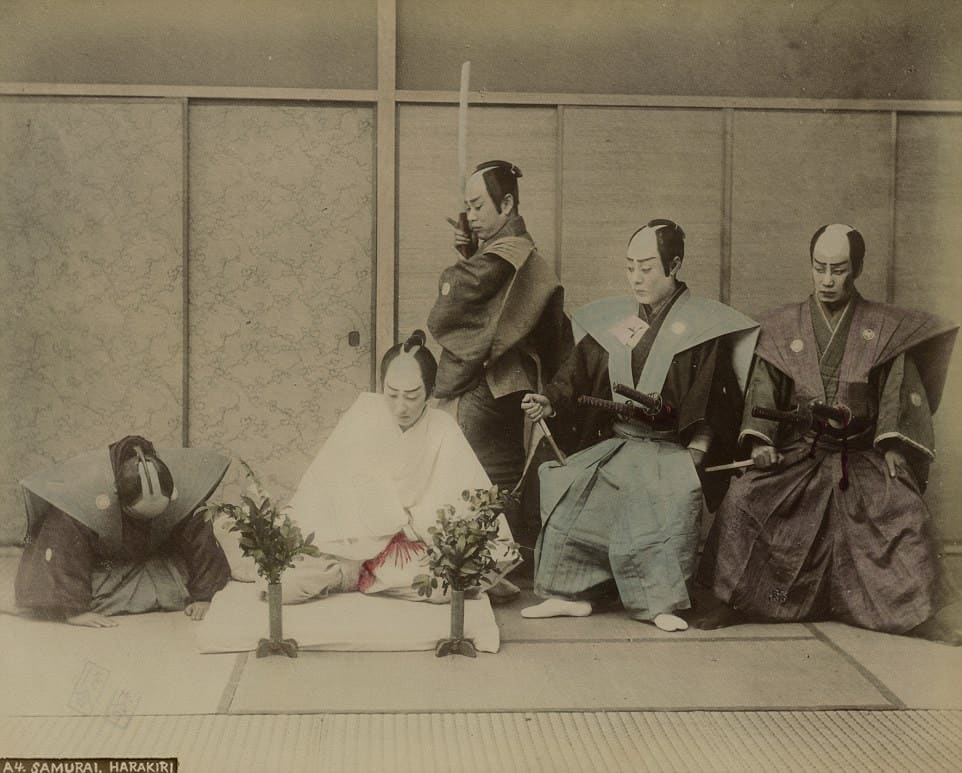
Late 19th century photograph showing preparations for seppuku
But what would actually happen to the samurai if he suddenly refused to rip open his stomach?
There is not much choice here, I tell you.
First option. A samurai, if his name was simply dishonored, could still live with that shame. Medieval Japan was a small, closed state. There was absolutely nowhere to hide. You definitely won’t start a new life anywhere. And the person in society remained forever an outcast, who was made fun of wherever he appeared.
If one Japanese aristocrat committed a crime against another aristocrat, then secret ninja assassins sent by the enemies could simply find him and kill him. His loyal vassals could also take revenge for the murder of their master.
Thus, the famous legend tells us how 47 ronin (warriors who lost their overlord) took revenge on the murderer of their master - the courtier Kira Yoshinaka, who refused to commit hara-kiri. They stormed the offender’s palace and sent him to his forefathers. And then they themselves surrendered to the authorities and the entire “team” withcommitted seppuku. 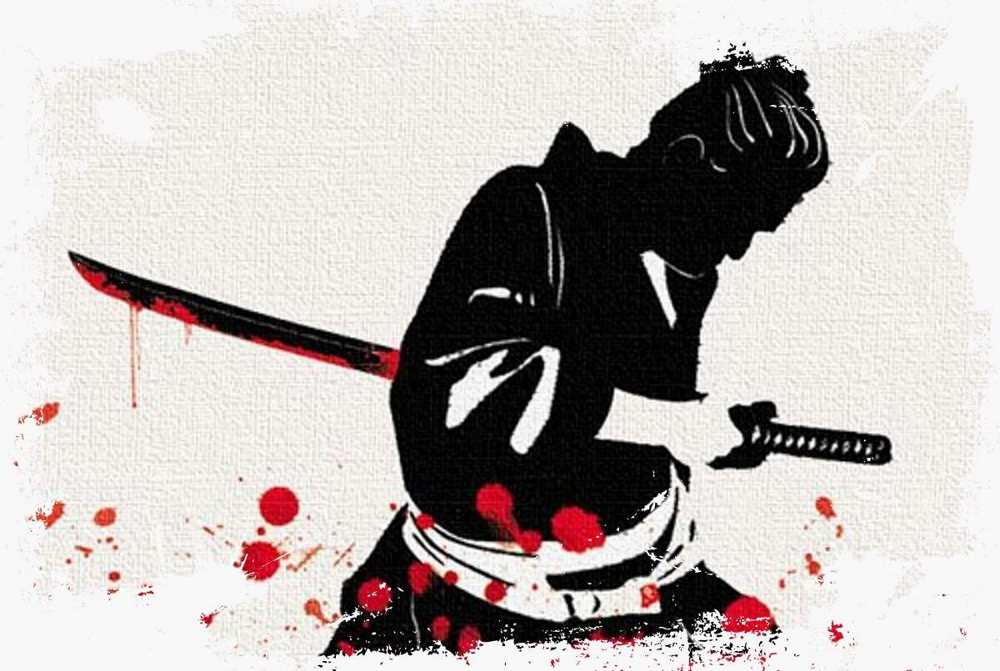
Or the mikado or shogun could take away all his wealth from the guilty samurai and his descendants and order him to go into voluntary exile forever. Which, in terms of difficulty and degree of hardship, could often be worse than any death...
And finally, if the samurai committed some very serious crime against the state or the Mikado and the shogun, then there was very little choice at all. Seppuku generally became an honorable right. For otherwise, after torture, the samurai was simply executed as an ordinary commoner by the sovereign’s servants themselves. A shameful execution such as beheading, crucifixion or hanging. 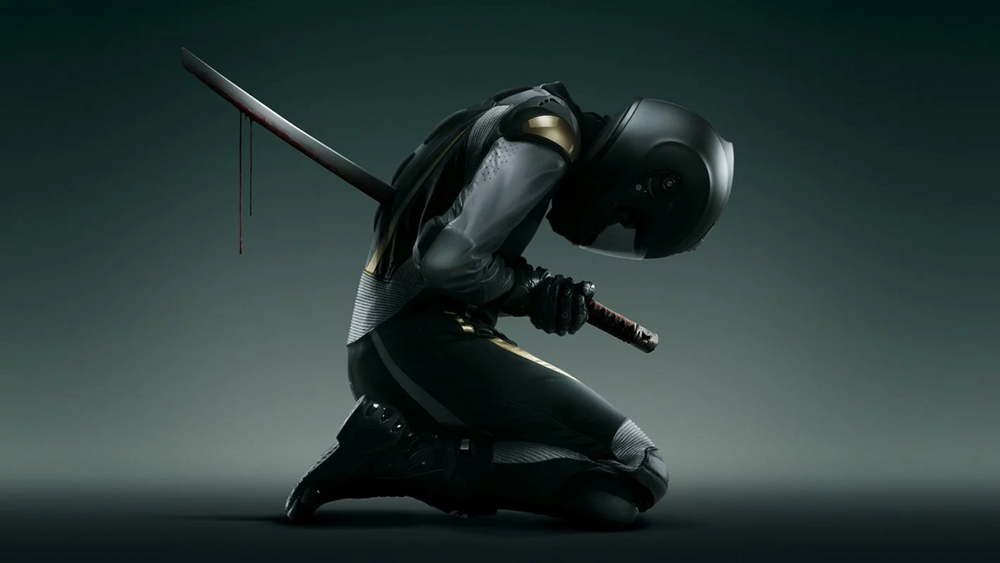
Harakiri is more of an honorable right of a warrior than a duty
In general, for the Japanese samurai who had committed a crime, hara-kiri only served as a good opportunity to take his own life. Rather than cover your name with shame, fall into the hands of enemies and be executed in a much more cruel and public way.
Therefore, Japanese warriors usually never abandoned this ritual. Because they didn't have much choice...












